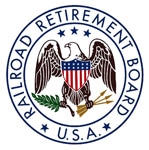
In order to file an application for benefits online via the website, an individual must have an Internet Services Account with the agency. For security purposes, first-time users must obtain a unique password, which they can do by clicking on the link for requesting a Password Request Code (PRC) in the Benefit Online Services login section of the www.rrb.gov home page.
Individuals who have already established an Internet Services Account and password can go online to file applications and claims for biweekly unemployment benefits, as well as conduct other business with the RRB over the Internet. For rail workers without power or Internet access, the RRB encourages them to call the agency toll-free at 1-877-772-5772.
Claimants can also find the address of the RRB office servicing their area and get information about their claims and benefit payments by calling this toll-free number. Most RRB offices are open to the public from 9:00 a.m. to 3:30 p.m. on Monday, Tuesday, Thursday, and Friday, and 9 a.m. to noon on Wednesday, except on Federal holidays. Field office locations can also be found online at www.rrb.gov.
Railroad unemployment benefits are normally paid for the number of days of unemployment over four in 14-day registration periods. The maximum daily benefit rate is currently $72. However, as a result of sequestration under the Budget Control Act of 2011, unemployment benefits are reduced by 6.9 percent through September 30, 2017, so the maximum benefit in a two-week period is $670.32. Also, during the first 14-day claim period in a benefit year, benefits are payable for each day of unemployment in excess of seven, rather than four, which basically creates a one-week waiting period.
To qualify for normal railroad unemployment benefits in the benefit year that began July 1, 2017, an employee must have had railroad earnings of at least $3,673.50 in calendar year 2016, counting no more than $1,455 for any month. Those who were first employed in the rail industry in 2016 must also have at least five months of creditable railroad service in that year.
Under certain conditions, employees with at least 10 years of service who do not qualify on the basis of their 2016 earnings may still be able to receive benefits. For example, employees who received normal benefits in the benefit year that ended June 30, 2017, might still be eligible for extended benefits. In addition, 10-year employees may be eligible for accelerated benefits if they had rail earnings of at least $3,637.50 in 2017, not counting earnings of more than $1,455 a month.

 BloombergPolitics
BloombergPolitics
